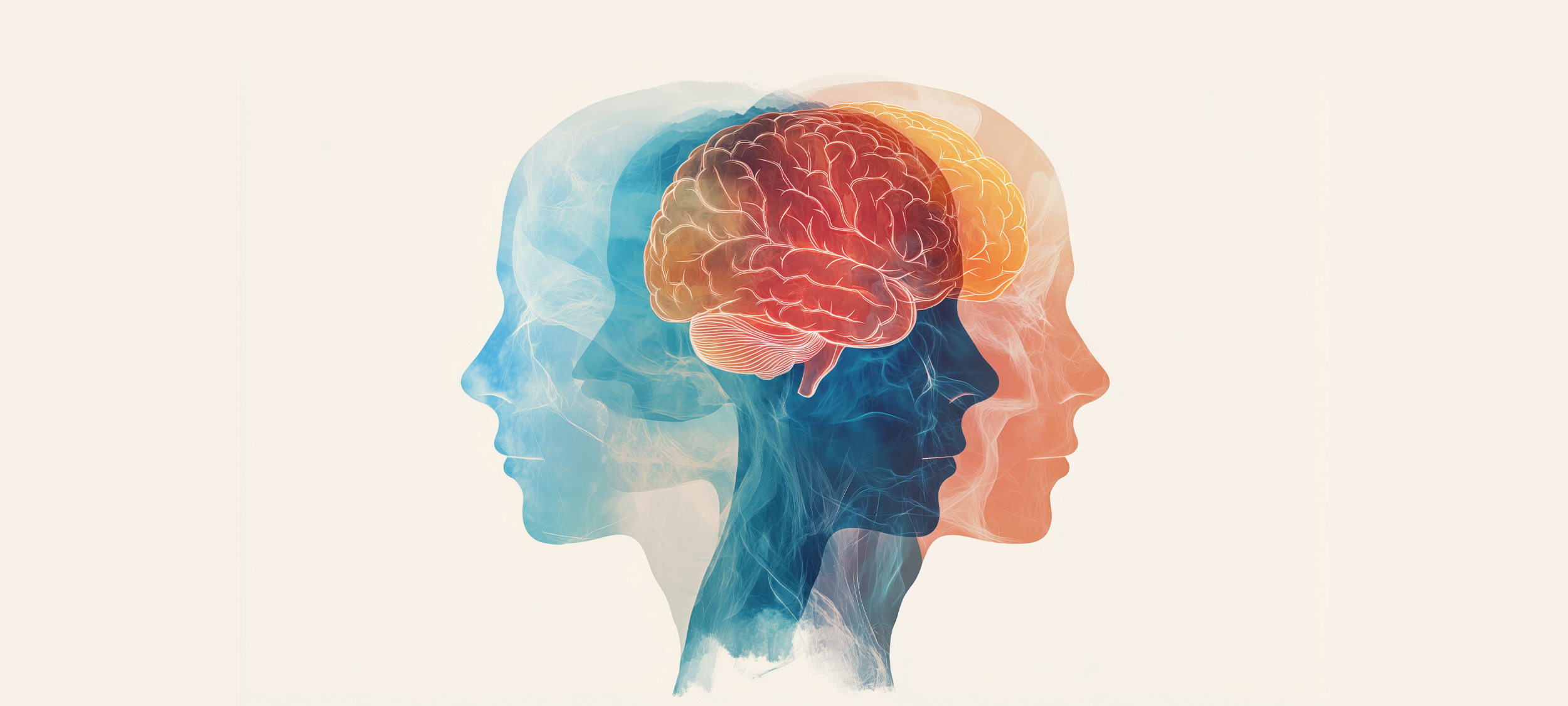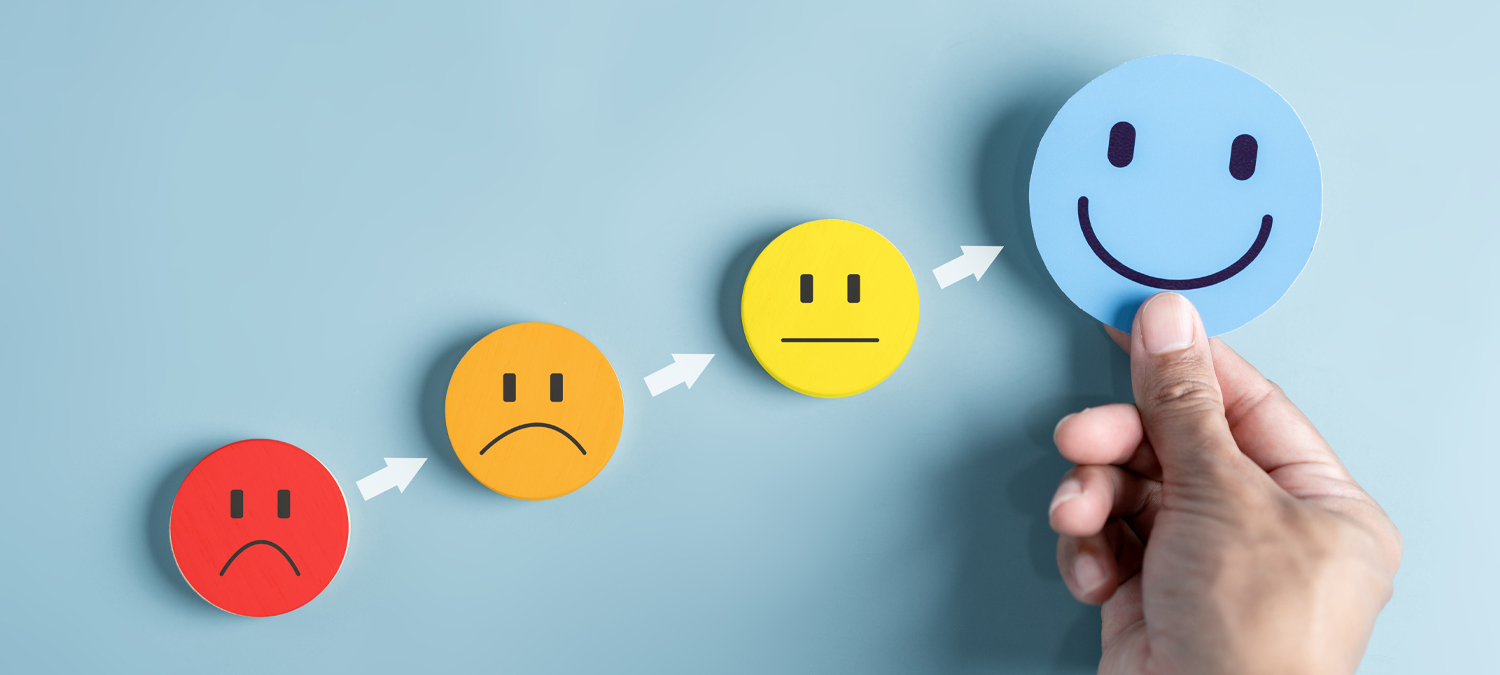Beyond Mental Health Awareness Month: A Conversation with Dr. Anna Konova

Each May, Mental Health Awareness Month, provides an essential reminder of the progress we’ve made—and the journey still ahead—in understanding and treating mental illness. Yet, the importance of mental health extends beyond a single month. One in five Americans faces a mental health challenge, yet effective care remains out of reach for many. To sustain this momentum, we spoke with Dr. Anna Konova, Associate Professor of Psychiatry at Rutgers University, whose groundbreaking research on addiction reveals how the brain’s choices shape mental health. Her insights show why mental health matters every day and not just one month in a year.
In this conversation, Dr. Konova shares insights into her motivation, the crucial importance of interdisciplinary collaboration, and the transformative power of neuroscience research in mental health care.
Rethinking Addiction: How Decision Science Illuminates Mental Health
“My research seeks to understand how we make decisions, how decision-making is shaped by our motivational states and context, and the mechanisms that drive addictive behavior.” — Dr. Anna Konova [1]
Dr. Konova’s lab explores how cravings, emotions, and environments shape decision-making, particularly in addiction. Using computational neuroscience techniques, her team builds mathematical models that reveal how the brain assigns value to choices, like choosing between drug use versus remaining sober.
A significant breakthrough emerged in a 2018 PNAS study, demonstrating that intense cravings disrupt this valuation process, causing the brain to over prioritize drug-related cues over other rewards such as money or social connections. This shift, observed in cocaine users, explains why relapse feels so compelling – it’s a measurable change in brain function, not just a lack of willpower[2].

Follow-up research in JAMA Psychiatry further identified specific decision-making patterns, like overvaluing immediate rewards, that can predict opioid use up to six months later in patients receiving addiction treatment [3]. These insights could enable clinicians to identify at-risk individuals and tailor interventions proactively, before relapse occurs.
“By understanding these mental processes better, we hope to be able to better explain what patients are going through, develop more targeted treatments that correct or compensate for maladaptive decision patterns in addiction, and match the right treatment to the right person and at the right time.” — Dr. Anna Konova [1]

Why Collaboration Is the Future of Mental Health Science
“Mental health disorders like addiction are some of the most challenging and costly health issues we face. But… we still do not fully understand what causes them — or why treatments work for some people and not for others.” — Dr. Anna Konova [1]
Mental health conditions, such as addiction or anxiety, are complex puzzles shaped by biology, psychology, environment, and life history. Solving them requires a multidisciplinary approach where experts from diverse fields work together. Dr. Anna Konova, co-director of the Rutgers-Princeton Center for Computational Cognitive Neuro-Psychiatry (CCNP), advocates strongly for collaboration across diverse fields, uniting neuroscientists, psychiatrists, psychologists, and data scientists to map how brain functions drive psychiatric symptoms [4]. This collaborative structure uncovers hidden cognitive and behavioral patterns, revealing insights no single field could achieve alone.
“To address these challenges, we take an interdisciplinary ‘computational neuro-psychiatry’ approach that brings together neuroscience, data science, and theory to build models of how the brain works and uncover hidden patterns in how people think and feel. This effort has been greatly enhanced by collaborations within and outside Rutgers, including with members of the Rutgers-Princeton Center for Computational Cognitive Neuro-Psychiatry.” — Dr. Anna Konova [1]
This collaborative approach was recognized by a $16M P50 center grant award from the NIH to establish the Silvio O. Conte Center for Understanding Latent Cause Inference, which investigates how the brain infers patterns—a process often disrupted in anxiety or addiction [5].
Through shared research frameworks, these collaborations bridge laboratory science and clinical application, translating lab discoveries into real-world solutions, such as personalized treatments tailored to individual brain patterns [6]. This teamwork is accelerating the path to diagnostics and therapies that truly meet their patients’ needs.
Brain Science at the Heart of Mental Health
“Mental health and addiction are shaped by both biology and individual experiences. To fully understand these conditions, we have to study both.” — Dr. Anna Konova [1]
Historically, mental health care largely focused on observable behaviors like impulsivity or mood swings. But these are just manifestations of changes in the brain’s intricate neural circuits and chemistry. “At the core of these conditions are difficulties with thoughts, feelings, and behaviors, the very experiences that treatments aim to improve. These individual experiences are fundamentally tied to how the brain works.” — Dr. Anna Konova [1]
Neuroscience research-driven mechanistic approaches hold immense clinical promise. Utilizing advanced tools like neuroimaging, genetic analysis, and computational modeling, researchers aim to identify biomarkers—biological indicators that predict how individuals will respond to particular treatments [8]. Dr. Konova’s pioneering work contributes directly to this transformation, demonstrating how addiction modifies brain function and how this understanding can enhance treatment personalization and effectiveness [3]. This personalized approach promises to reduce the frustrating cycle of trial-and-error of traditional mental health care.
Dr. Konova’s research reflects a broader shift toward a mechanistic understanding of mental illness. Modern neuroscience research has traced symptoms such as impulsivity or emotional dysregulation back to specific neural pathways involved in decision-making, reward processing, and impulse control [7].
“Cutting funding for brain health research will not only significantly slow progress but it will likely prevent us from ever truly understanding or addressing mental illness and addiction.” — Dr. Anna Konova [1]
By placing neuroscience research at the heart of mental health, Dr.Konova’s work is helping discover new treatments that are more precise, effective, and compassionate.

Beyond Mental Health Awareness Month: A Continuous Commitment
Although Mental Health Awareness Month has passed, the need for awareness and action remains. Every day offers a chance to make a difference :
- Fund Research: Invest in cutting-edge research studies that discover how changes in the brain result in mental health disorders.
- Champion Collaboration: Support interdisciplinary collaboration to accelerate discovery and application.
- Advocate for equitable access: Push for fair, evidence‑based mental health care for all.
- Foster open dialogue: Spark conversations to erase stigma and empower those affected.
Dr. Konova’s pioneering research, alongside countless scientists, clinicians, and advocates, shows that mental health demands unwavering commitment. It reminds us that mental health is a continuous priority. By sustaining the energy of May throughout the entire year, we can transform awareness into lasting impact.
Further Reading & Sources
- Internal Interview with Dr. Anna Konova (BHI, 2025)
- PNAS Study on Craving and Decision Bias
- JAMA Psychiatry: Predicting Opioid Relapse
- Rutgers-Princeton CCNP
- Conte Center – Latent Cause Inference
- ScienceDirect: Interdisciplinary Research Models
- Yale: Beyond Behavior – Neuroscience of Mental Illness
- PMC: Biomarkers for Personalized Psychiatry
